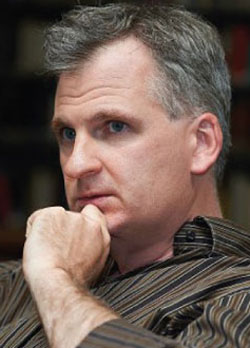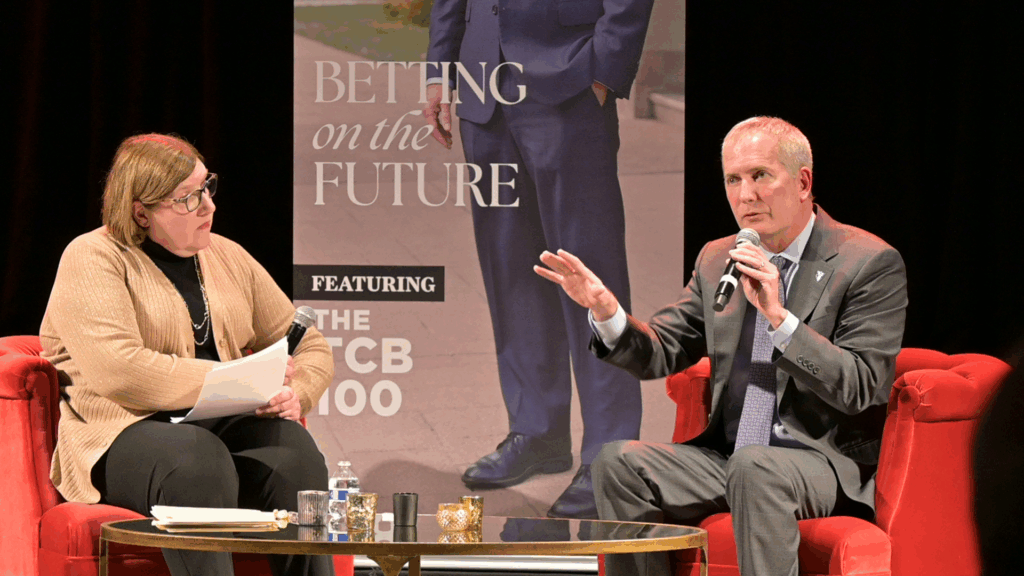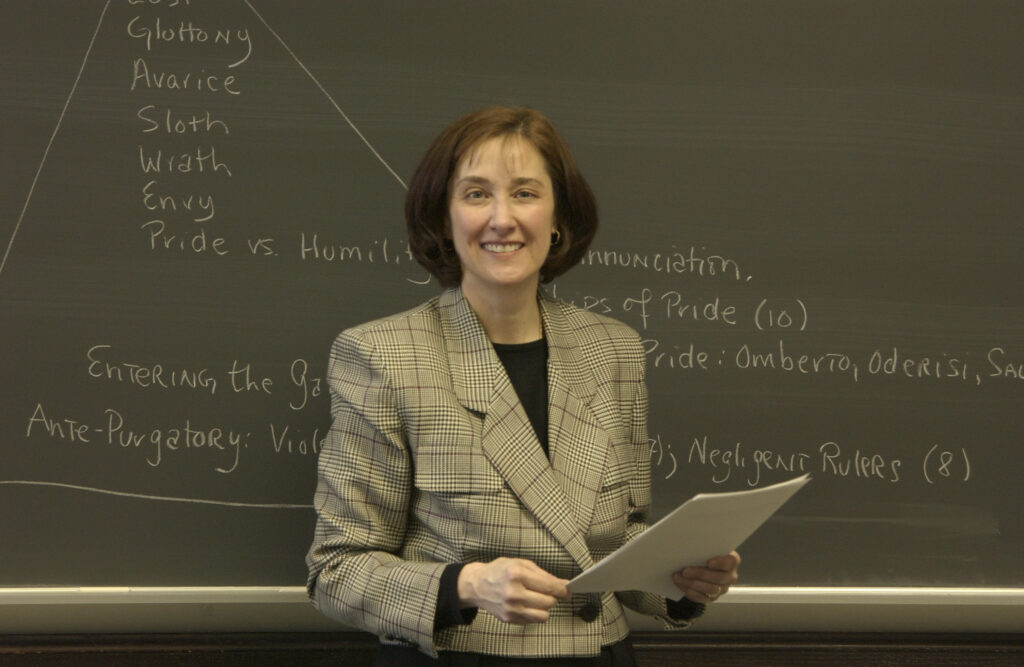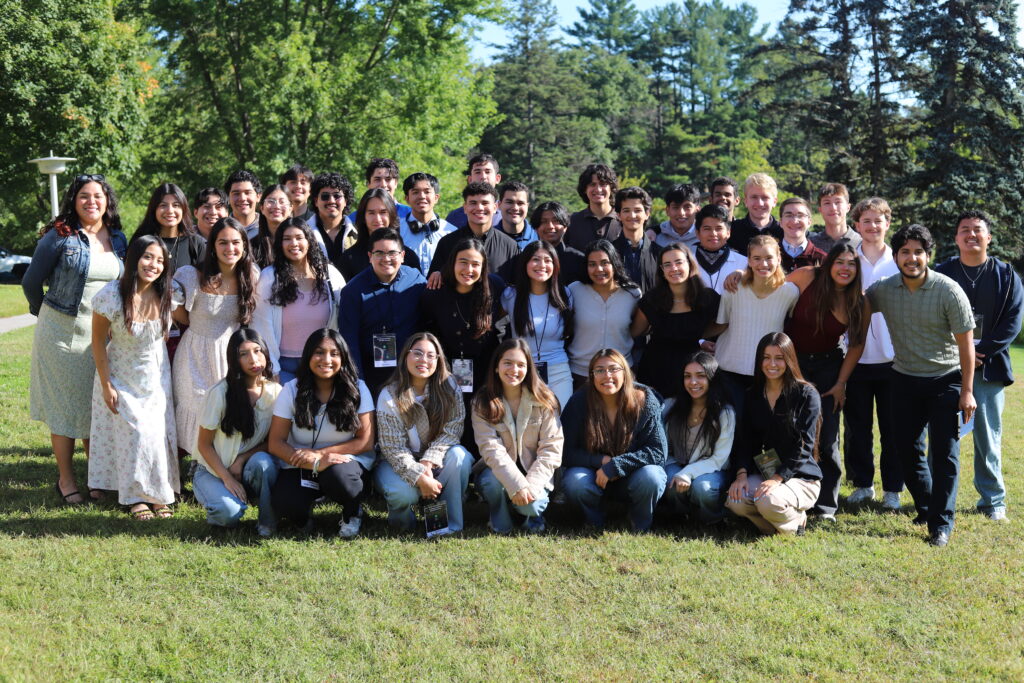Dr. Timothy Snyder, the Housum Professor of History at Yale University and author of several award-winning books – including Bloodlands: Europe Between Hitler and Stalin and Black Earth: The Holocaust as History and Warning – will give two lectures in the Twin Cities on Thursday, April 6, one at the University of St. Thomas and another at the University of Minnesota.
- His St. Thomas lecture, based on his book Bloodlands, begins at 11:45 a.m. in Room 100 (the Great Room) of McNeely Hall, located on the university’s St. Paul campus at Summit and Cleveland avenues. Pizza will be served.
- His University of Minnesota lecture, “The Politics of Mass Killing: Past and Present,” begins at 7 p.m. in Coffman Theater of Coffman Memorial Union on the university’s Minneapolis campus. A reception and book-signing will follow. This program, which also serves as the keynote lecture for an international symposium on "Comparative Genocide Studies and the Holocaust," is based on his most recent books, Black Earth and On Tyranny.
Both lectures are free and open to the public. Those attending the evening lecture at the University of Minnesota are asked to register beforehand here.
Snyder, who teaches undergraduate and graduate courses in modern East European political history, is a permanent fellow at the Institute for Human Sciences in Vienna. He received his doctorate from the University of Oxford in 1997, where he was a British Marshall Scholar.
His publications include these eight books: Nationalism, Marxism, and Modern Central Europe: A Biography of Kazimierz Kelles-Krauz (1998, second edition 2016); The Reconstruction of Nations: Poland, Ukraine, Lithuania, Belarus, 1569-1999 (2003); Sketches from a Secret War: A Polish Artist’s Mission to Liberate Soviet Ukraine (2005); The Red Prince: The Secret Lives of a Habsburg Archduke (2008); Bloodlands: Europe Between Hitler and Stalin (2010); Black Earth: The Holocaust as History and Warning (2016); and the just-released On Tyranny: Twenty Lessons from the Twentieth Century (Feb. 28, 2017).
Bloodlands won 12 awards including the Emerson Prize in the Humanities, a Literature Award from the American Academy of Arts and Letters, the Leipzig Award for European Understanding and the Hannah Arendt Prize in Political Thought.
Black Earth has been a bestseller in four countries and has received multiple distinctions including the award of the Dutch Auschwitz Committee.
Between 1933 and 1945, some 14 million civilians were killed by the Nazi and Soviet regimes as matter of deliberate policy in the lands between Berlin and Moscow.
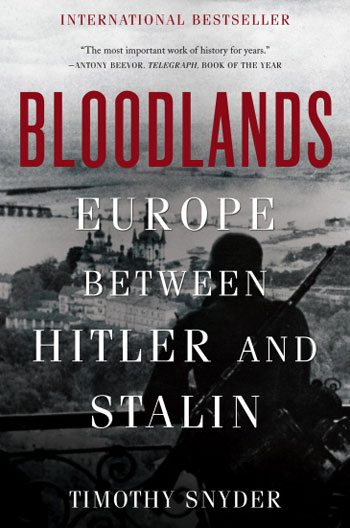 In a New York Times review of Bloodlands, Joshua Rubenstein, writes that “it was in German-controlled Soviet territory that the Nazis carried out the full logic of their murderous intentions. Within a half-year, the Wehrmacht succeeded in occupying all of Ukraine, Belarus and the Baltic States. And it was here, with the murder first of Jewish men and then of the entire Jewish populations of small towns, that the Germans began the systematic open-air massacres that resulted in the slaughter of 2 and a half million Jews in German-occupied Soviet territory, a proportion of the 6 million that remains hard to grasp.”
In a New York Times review of Bloodlands, Joshua Rubenstein, writes that “it was in German-controlled Soviet territory that the Nazis carried out the full logic of their murderous intentions. Within a half-year, the Wehrmacht succeeded in occupying all of Ukraine, Belarus and the Baltic States. And it was here, with the murder first of Jewish men and then of the entire Jewish populations of small towns, that the Germans began the systematic open-air massacres that resulted in the slaughter of 2 and a half million Jews in German-occupied Soviet territory, a proportion of the 6 million that remains hard to grasp.”
Jewish Book World reports that “Snyder’s book forces us to frame the Holocaust within a wider landscape of genocidal policies by both the Nazis and the Soviets without diminishing the uniqueness of Hitler’s war against the Jews.” The Soviet policies of mass murder included the Holodomor, the state-orchestrated famine in Ukraine, which took the lives of more than 3 million. In his St. Thomas lecture, Snyder will describe and explain the policies that made the lands touched by both Nazi and Soviet power the most dangerous on the planet.
Black Earth draws on new archival sources from Eastern Europe and on a vast historiography. As a reader of 10 European languages, Snyder is the first historian to master this hugely diverse collection of source material and to depict the entirety of the Holocaust in such accessible terms.
British historian Ian Kershaw writes of Black Earth that “Timothy Snyder’s bold new approach to the Holocaust links Hitler’s racial worldview to the destruction of states and the quest for land and food. This insight leads to thought-provoking and disturbing conclusions for today’s world. Black Earth uses the recent past’s terrible inhumanity to underline an urgent need to rethink our own future.”
In his most recent book, On Tyranny, Snyder argues that today our political order faces new threats, not unlike the totalitarianism of the 20th century, and that we are no wiser than the Europeans who saw democracy yield to fascism, Nazism or communism. Our one advantage, Snyder argues, is that we might learn from their experience. Svetlana Alexievich, winner of the Nobel Prize in Literature, writes that “We are rapidly ripening for fascism. This American writer leaves us with no illusions about ourselves."
The two lectures have been organized, co-sponsored and/or supported by the Arsham and Charlotte Ohanessian Chair, the Center for Holocaust and Genocide Studies and Center for Austrian Studies, all at the University of Minnesota; by the Jay Phillips Center for Interfaith Learning, Aquinas Chair in Theology and Philosophy, College of Arts and Sciences, and the Grants and Research Office, all at St. Thomas; and the Arsham and Charlotte Ohanessian Fund for Justice and Peace Studies of the Minneapolis Foundation.
The Jay Phillips Center is a joint enterprise of St. Thomas and Saint John’s University, Collegeville.
